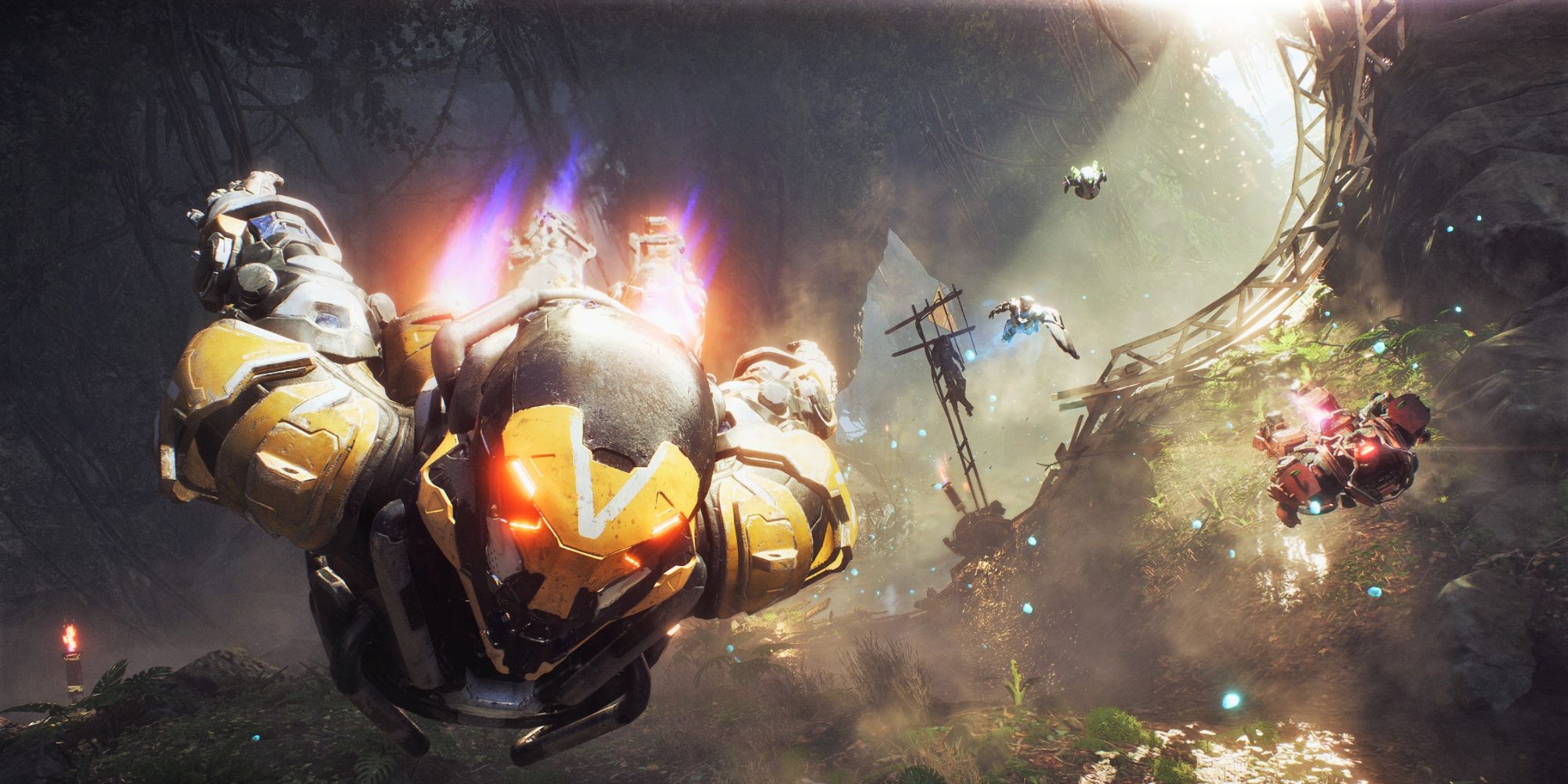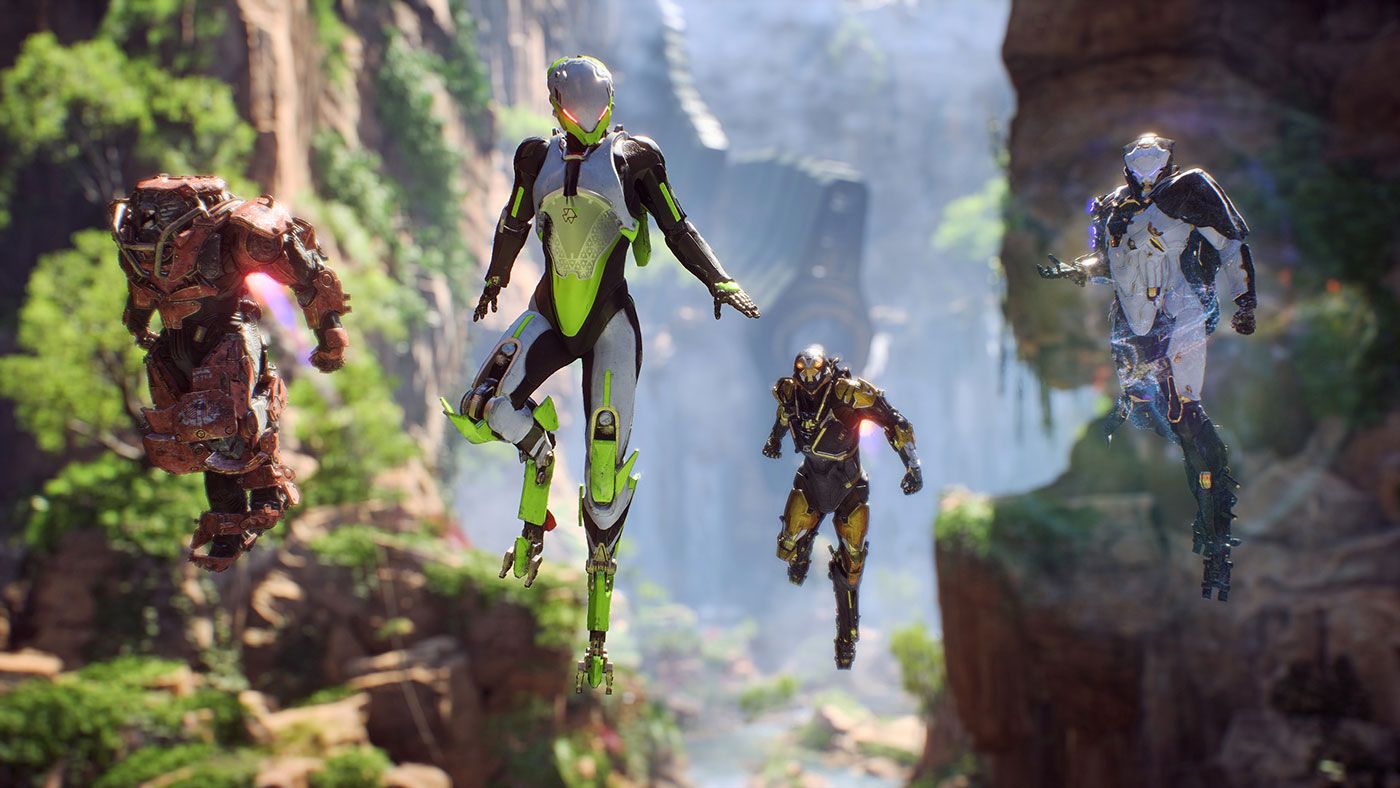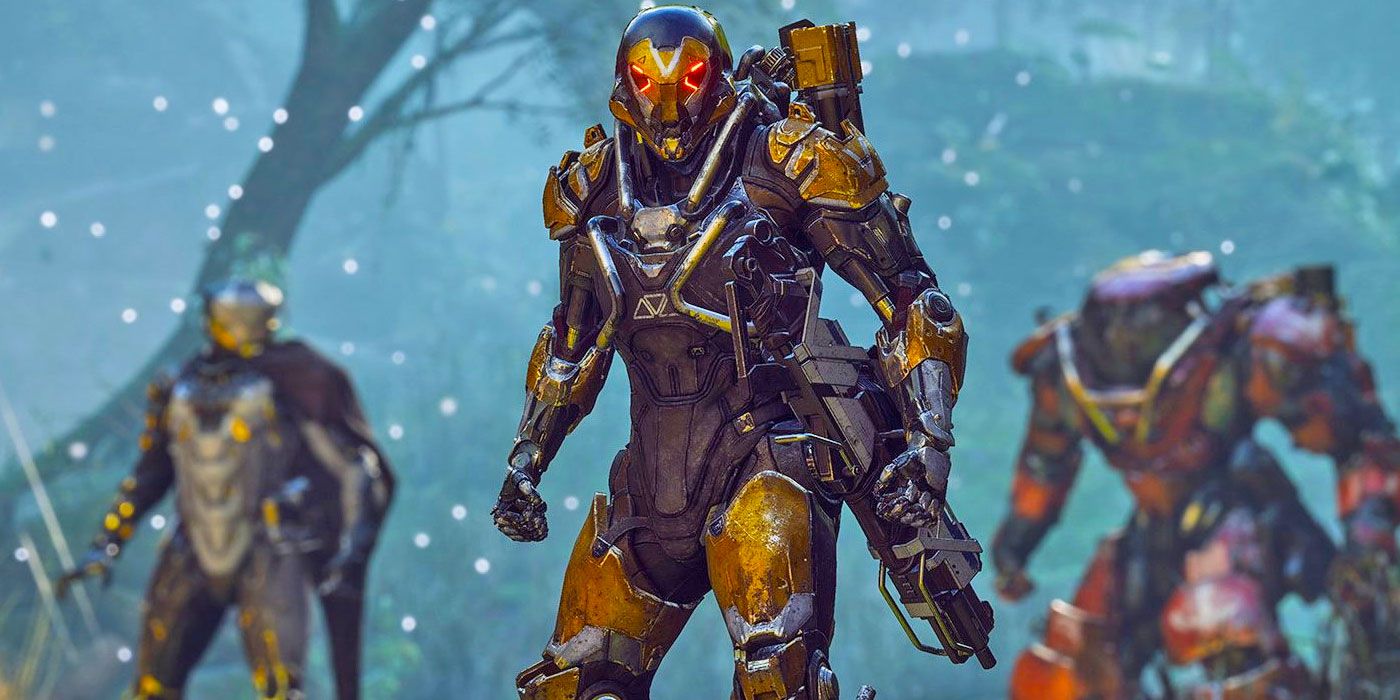Anthem should've been a hit. The game was developed by legendary studio BioWare and released after both Destiny and The Division -- two games Anthem could have taken cues from. One part sci-fi RPG and one part looter-shooter, Anthem was poised to succeed on the back of its rich world and energetic pre-launch buzz.
However, like No Man's Sky and fellow EA title Star Wars Battlefront II, that potential precipitously crashed. Strong sales were tempered by tepid critical response, and the entire game collapsed into near obscurity long before it should have. And, unlike No Man's Sky and Battlefront II, games with incredible redemption arcs, Anthem might not find that same salvation. What could've been the next console shooter craze turned into the archetypal AAA disappointment.
While many hoped that the Anthem Next update would give the title another lease on life, that seems less absolute now. As reported by Bloomberg, EA is getting ready to either pull the plug on Anthem or inject more resources into the game. Anthem Next was supposed to be the dramatic restructuring and facelift that could save what merit Anthem had, but it seems like the community may never see the fruits of that labor.
Anthem's Laundry List of Mistakes
Unfortunately, Anthem very well may be too far gone. The game launched on the wrong foot almost immediately, plagued by a myriad if issues, some of which were addressed, while others fell to the wayside. From connection troubles to bugs to loot inconsistencies to structural problems, Anthem missed the mark. While some of these flaws were ironed out with post-launch fixes, the overall post-launch support is what ultimately tanked the game.
The key lesson that Anthem overlooked, one that Destiny learned before it, is that live service games demand constant attention. Anthem's post-launch roadmap was patchy at best, hitting constant potholes with features that were delayed or dropped, trickling out halfhearted updates far too slowly. A looter-shooter lacking a compelling, replayable endgame refreshed with new activities is never going to meet the grade. EA and BioWare learned this the hard way, but this didn't need to be Anthem's narrative.
Perhaps the most frustrating element of Anthem fading was that so many of its problems could've been avoided if development hadn't been so insular. This team needed to take inspiration and advice from the live service games that fell on the sword before it. At the same time, the team needed to lean into what made BioWare special. Beyond the game's issues in terms of being a live service looter-shooter, Anthem simply found itself with a pernicious identity crisis.
BioWare, the studio renowned for ornate story-driven RPGs, was given very little room to flex those creative muscles. The game was most compelling when its charismatic characters and engaging lore were center-stage -- but they often weren't. Anthem was not able to strike a compelling balance between its desire for RPG story and action gameplay.
Anthem couldn't balance much of anything, unfortunately. From a gameplay perspective, Anthem undercut itself at many turns. Perhaps its most compelling and unique mechanic was its emphasis on verticality and flight, but that lost its luster when paired with level design that didn't take advantage of it. Nothing had scale or weight because the player could just fly over or around almost any hazard. BioWare constructed a beautiful world, but not one that the player could engage with in a meaningful way.
The Compelling Adventure Buried Underneath
In light of all its issues, Anthem wasn't such a disappointment because it was an overarchingly bad game. To the contrary, the disappointment stung more because certain facets of Anthem were legitimately great. The combat in particular soared, even if the mission variety certainly didn't. Even the most vapid and repetitive missions were made not only palatable, but fun on the back of the gunplay.
There's a solid argument for Anthem having some of the best looter-shooter combat that the genre has seen. Each Javelin offered a compelling gameplay style, especially the Storm Javelin, which was visually impressive and packed a gigantic punch. Shredding through waves of enemies was consistently exciting.
Anthem's worldbuilding and characters, while underutilized, still stood tall as well. From the jump, the game was beautiful and had remarkably memorable art direction. Had BioWare been allowed to mine Anthem's universe in a different context, this could've been another definitive sci-fi experience alongside Mass Effect.
When the game took its time and delved into its lore, or simply allowed the player to appreciate its smallest details, it was successful. There were moments when the cumbersome exterior of a live service title fell away, and glimpses of what Anthem could've been shone through. With better leadership and a clearer vision, Anthem could've been a much stronger experience. But those never came to pass.
The question now is whether the resources necessary to repair and reboot Anthem are worth the investment. It's ultimately a question that EA has to answer. The potential is still here, but perhaps the focus should be on BioWare's upcoming projects like Dragon Age instead. It would be a shame for all Anthem's strengths to never be realized, but at a certain point, accepting Anthem as a botched opportunity and moving forward may be right call.




